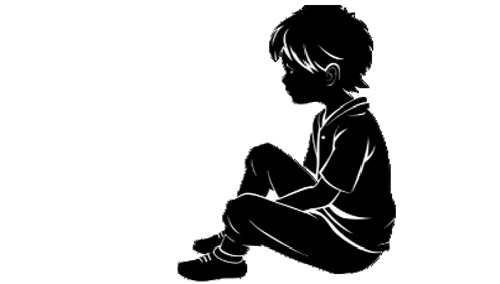There was a period when children were only seen, but the narrative has changed. Now, they're both heard and seen.
It means that the voices and experiences of these children are acknowledged and valued.
The old trend or culture emphasised the notion that children should behave well and be quiet.
It wasn't a new concept though, but it was commonly associated with particularly the 18th through to the mid-20th century in some cultures, especially in Africa.
It is worth celebrating that these little, inexperienced, unskilled, are seen and heard contemporaneously today. Children, their experiences and conditions, are to be recognised.
The physical, emotional, social, mental and holistic health of children are not to be trivialised.
It is, therefore, worth discussing the subject child stress. Child stress, that may be a response to demands exceeding their coping abilities, can manifest in various forms. It could also be termed childhood stress.
Child stress
By definition, child stress refers to the experience of pressure or tension in a child's life that could be triggered by a variety of factors, both internal and external.
It is when a child goes through or feels overwhelmed by pressure, leading to emotional, psychological, or physical changes.
It could occur in any setting that requires the child to adapt or change. Stress could be good for children, when in good measure, as it causes them to be active.
Positive changes, such as starting a new activity, could be linked to stress.
Increased focus, stronger immunity, improved performance, and higher motivation are identified positive aspect of stress (in good amount).
There is the cognitive benefit of impacting memory in the short term, for instance in exams and content memorisation.
When guided, stress can provide better resilience when faced with a situation.
However, it is most commonly associated with negative changes such as illness or death in the family - parent, sibling, grandparent or any other relative.
Excessive stress
Excessive stress can affect a child's thinking, actions, feelings and relations.
Stressors among children could be but not limited to: homelessness, anxiety about school tasks/grades, problems with friends, bullying, peer pressures, changing schools, negative self-thoughts, going through body changes, parental divorce or separation, financial difficulties, abuse, unsafe setting, etc.
Behaviours of parents, teachers and family relations could even stress a child - to exemplify, a teacher who whips severely.
Parents, teachers and the community should provide support to stressed children - they are to be present to hear and listen to them.
Provide safe environment, making them feel loved, and cared for.
Teaching coping skills (to age-appropriate kids) is essential — things they can do in such situations.
Mindfulness and relaxation are recommended.
Parents, schools and guardians are to seek support of professionals. Listening and trust are equally effective tools.
At school, teachers should desist from sarcastic statements against children with academic challenges.
Likewise, at home, unnecessary comparisons among siblings regarding talents, social abilities and strengths aren't healthy.
Matters of religion and faith should be well-introduced, carefully and without coercion or force.
Any attempt to impose it may trigger stress.
Stress online
In an era of technology and social media, cyberbullying and threats persist. Homes privileged to have provided gadgets should guide them and set boundaries.
Reports of abuses should be tackled with all seriousness and urgency.
Children learn how to respond to stress as they grow and develop.
Ignoring and not placing attention on child stress endangers their health, growth, safety and security.
They're vulnerable, and do not know best ways to describe their moods, feelings and anxieties.
Community children's clubs could discuss and demonstrate suitable techniques to manage stress.
Churches and mosques' children's departments should devise age-appropriate strategies to teach them, as mental health of the child is as crucial as their spiritual lives.
School vacations and Saturdays could be used for social activities.
Siesta, Physical Education, library sessions should be integral part of school timetable.
Parents/guardians should ensure screen-time management. Good sleep culture is encouraged.
Child stress is common among children, and should not be neglected as unimportant.
Healthy children grow to become functional adults.
Let's "hear and see" the children - acknowledging their value.
The writer is a child worker & etiquette coach.
E-mail: amoakoseyrichard90@gmail.com

